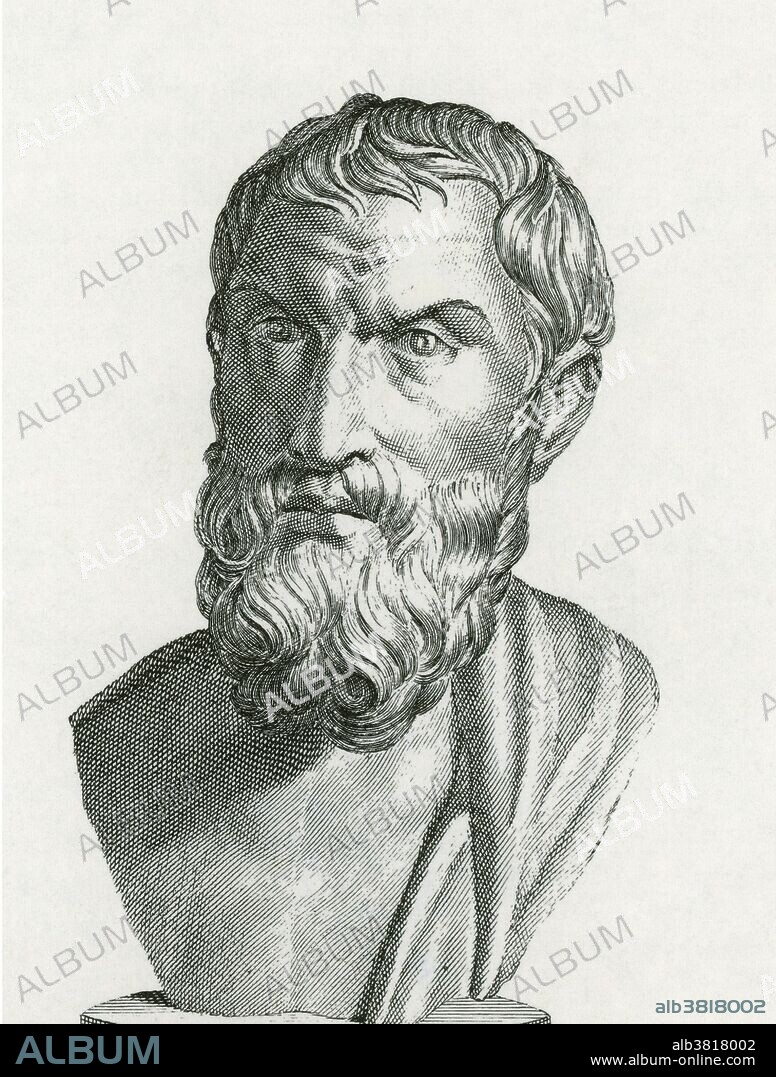alb3818002
Epicurus, Greek Philosopher

|
Zu einem anderen Lightbox hinzufügen |
|
Zu einem anderen Lightbox hinzufügen |



Haben Sie bereits ein Konto? Anmelden
Sie haben kein Konto? Registrieren
Dieses Bild kaufen

Titel:
Epicurus, Greek Philosopher
Untertitel:
Siehe automatische Übersetzung
Etching of a statue of the small bust of Epicurus, in bronze. The Statue is found in volumes of Herculaneum from 1793-1809. Epicurus (341 - 270 BC) was an ancient Greek philosopher as well as the founder of the school of philosophy called Epicureanism. Only a few fragments and letters of his 300 written works remain. Much of what is known about Epicurean philosophy derives from later followers and commentators. For Epicurus, the purpose of philosophy was to attain the happy, tranquil life, characterized by ataraxia (peace and freedom from fear) and aponia (the absence of pain) and by living a self-sufficient life surrounded by friends. He taught that pleasure and pain are the measures of what is good and evil; death is the end of both body and soul and should therefore not be feared; the gods neither reward nor punish humans; the universe is infinite and eternal; and events in the world are ultimately based on the motions and interactions of atoms moving in empty space. Epicurus never married and had no known children. He suffered from kidney stones, to which he finally succumbed in 270 BC at the age of 72.
Bildnachweis:
Album / Science Source / New York Public Library
Freigaben (Releases):
Model: Nein - Eigentum: Nein
Rechtefragen?
Rechtefragen?
Bildgröße:
3144 x 4151 px | 37.3 MB
Druckgröße:
26.6 x 35.1 cm | 10.5 x 13.8 in (300 dpi)
Schlüsselwörter:
3. JAHRHUNDERT V. CHR. • 3. JH. V. U. Z. • 4. JAHRHUNDERT V. CHR. • 4. JAHRHUNDERT VOR CHRISTUS • 4. JH. V. U. Z. • BERÜHMT • BERÜHMTE PERSÖNLICHKEIT • ILLUSTRATION • ILLUSTRATIONS • MANN • MATERIALISMUS • NOTABEL • PERSON • PERSöNLICHKEITEN • PERSÖNLICHKEITEN • PHILOSOPHIE • PORTRAIT • PROMINENZ • WISSENSCH.: PHILOSOPHIE
 Pinterest
Pinterest Twitter
Twitter Facebook
Facebook Link kopieren
Link kopieren Email
Email
